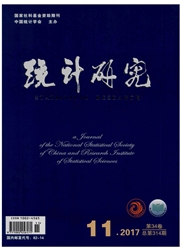

 中文摘要:
中文摘要:
本文利用全国工业企业微观数据,分析了制度环境对不同制度依赖性行业的企业全要素生产率的异质性影响。本文用契约密集度、产品复杂度和技术密集度等指标来衡量制度依赖性,检验结论表明:市场化、减少行政干预、司法公正与效率、执行合同的时间和成本等制度可以显著提升企业的全要素生产率,但对于制度依赖性产业的促进作用更强,这一结论是相当稳健的。本文具有重要的政策含义:在制度改革的大背景下,制度依赖性较高的行业具有显著的比较优势,因而是我国经济未来的增长动力。
 英文摘要:
英文摘要:
By the micro data of Chinese industrial enterprises database from 1998 to 2009, this paper analyzes the influence of institutional environment on the TFP in industries with different institution dependent. It uses the indicators of contract intensity, product complexity and technology intensity to measure the institution dependence. The results show that institutions associating with the market, government intervention reducing, judicial justice and efficiency, time and cost of contract implementation can significantly enhance total factor productivity, and they have a stronger effect on the institution dependent industries. This conclusion is quite robust. It has important policy implications: under the institutional reform, there is a significant comparative advantage for the higher institution dependent industries, which are the China' s economic growth momentum in the future. In the light of its general trend, the government should create a good system and policy environment for the development of these industries.
 同期刊论文项目
同期刊论文项目
 同项目期刊论文
同项目期刊论文
 期刊信息
期刊信息
